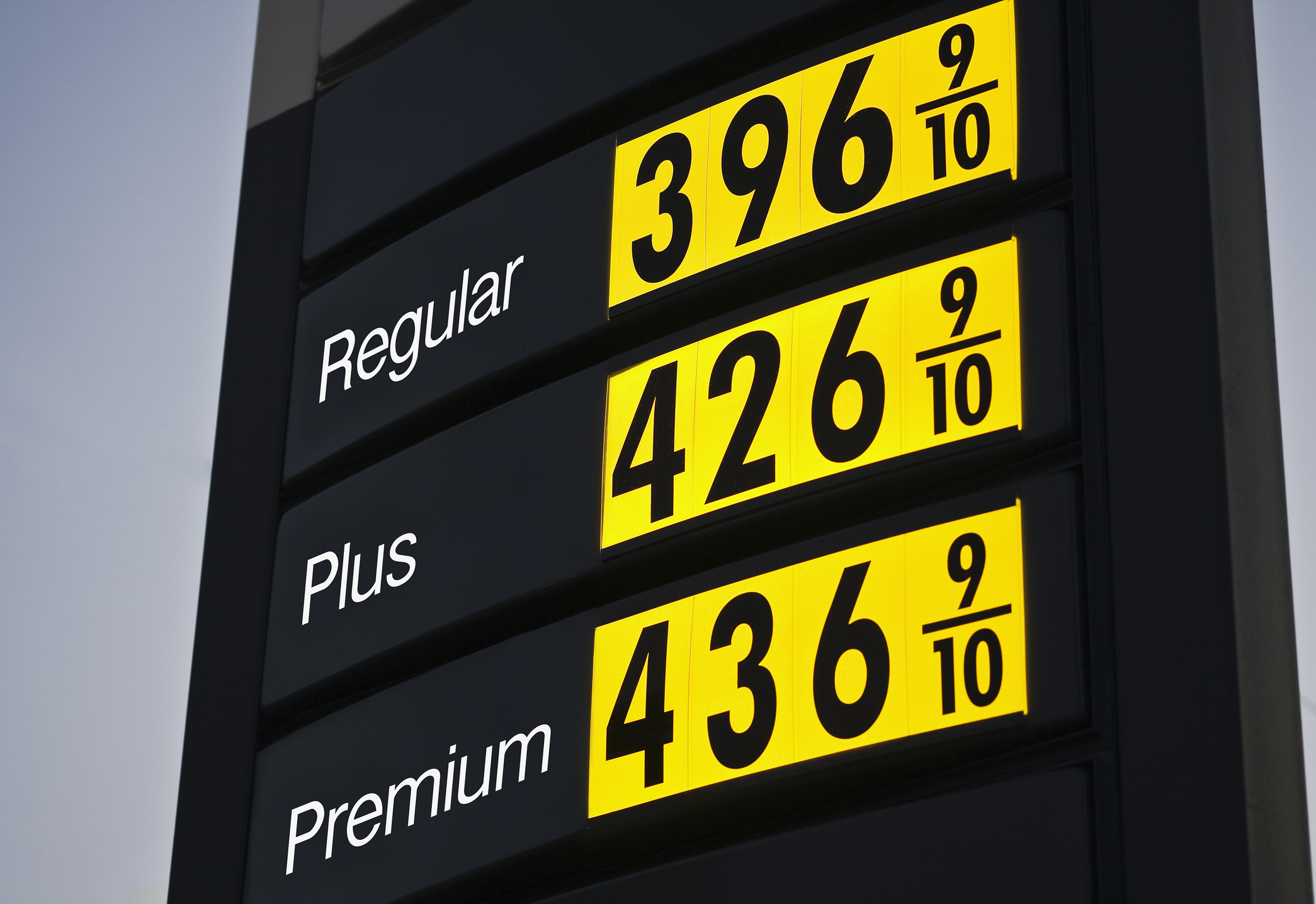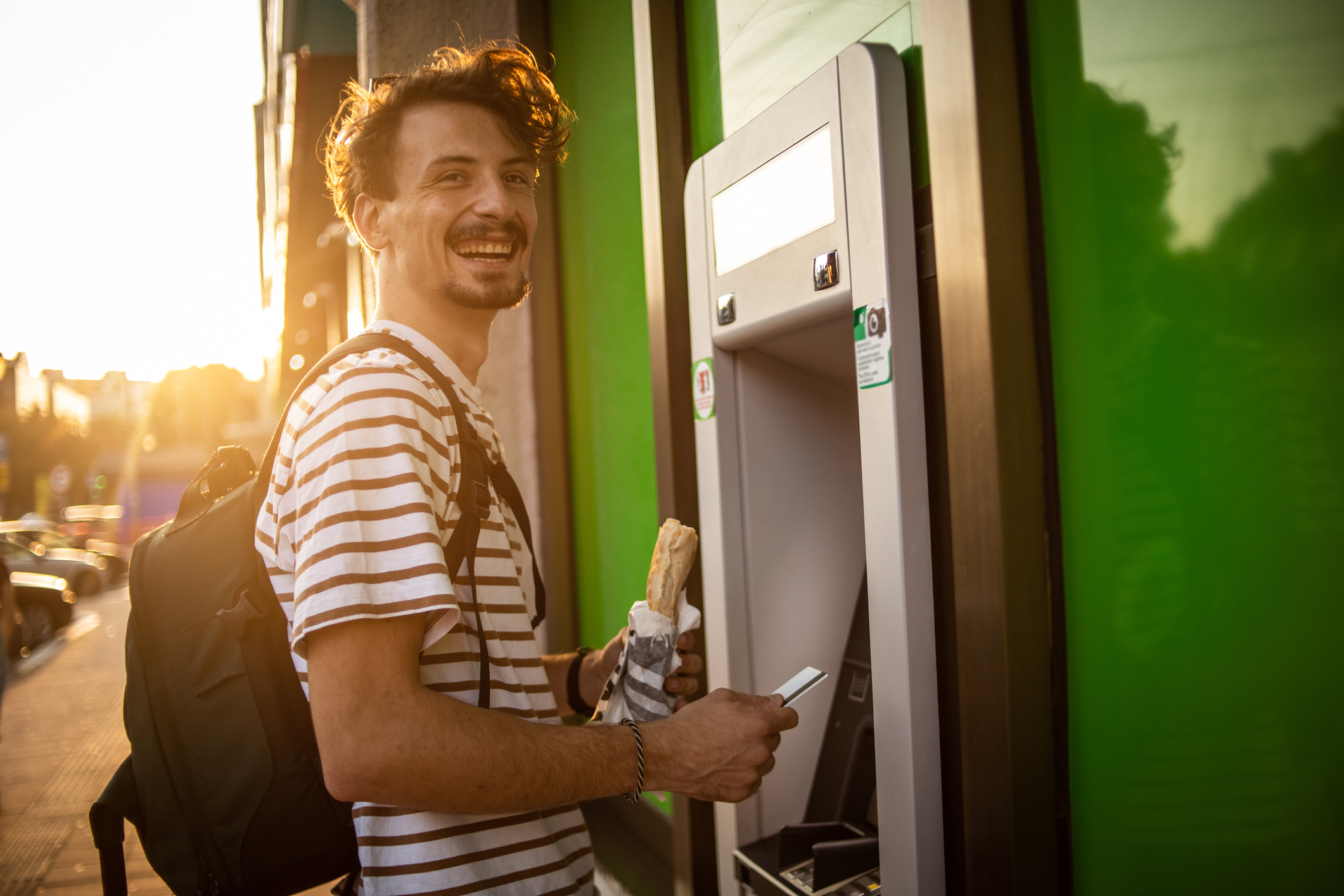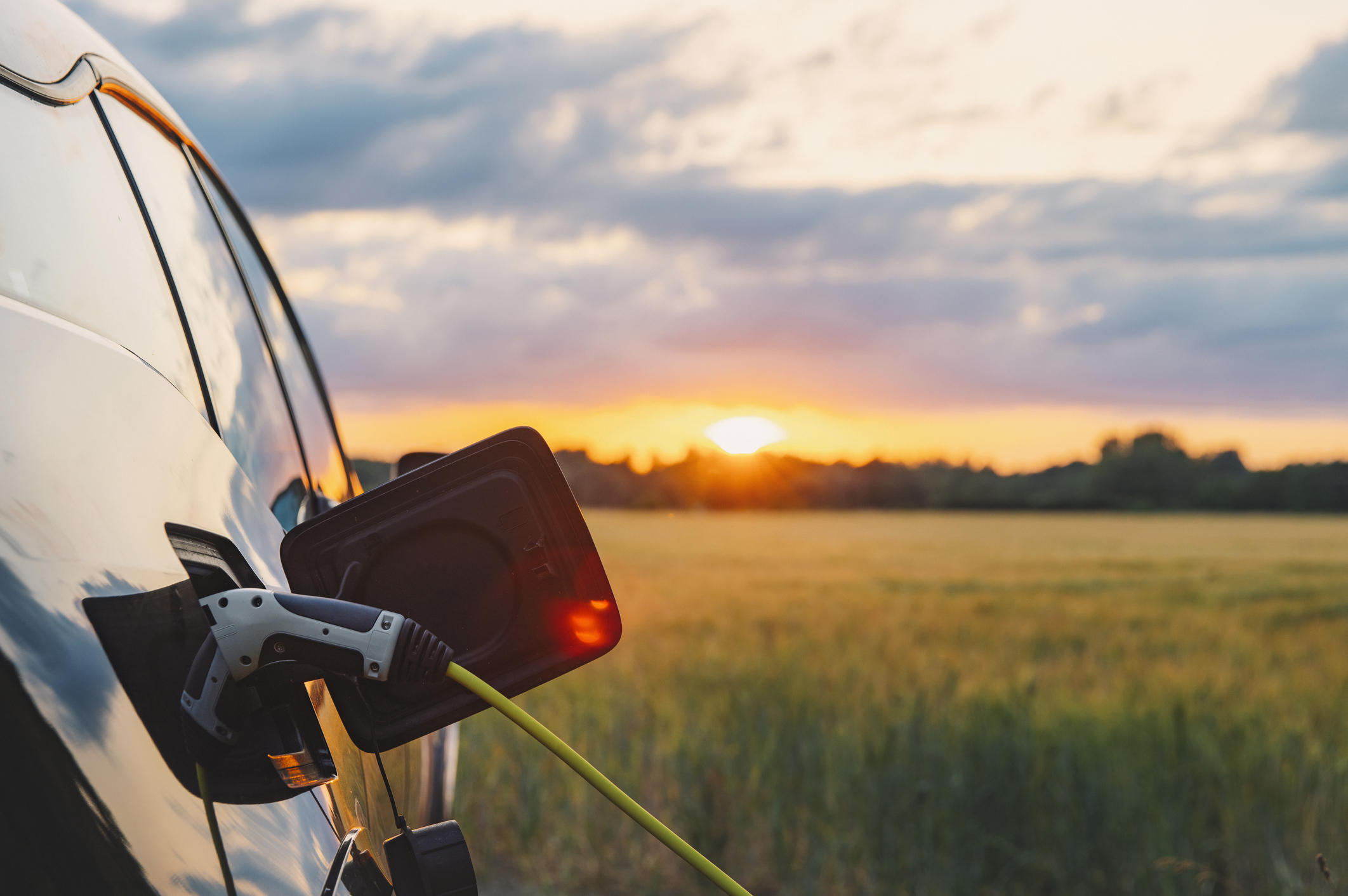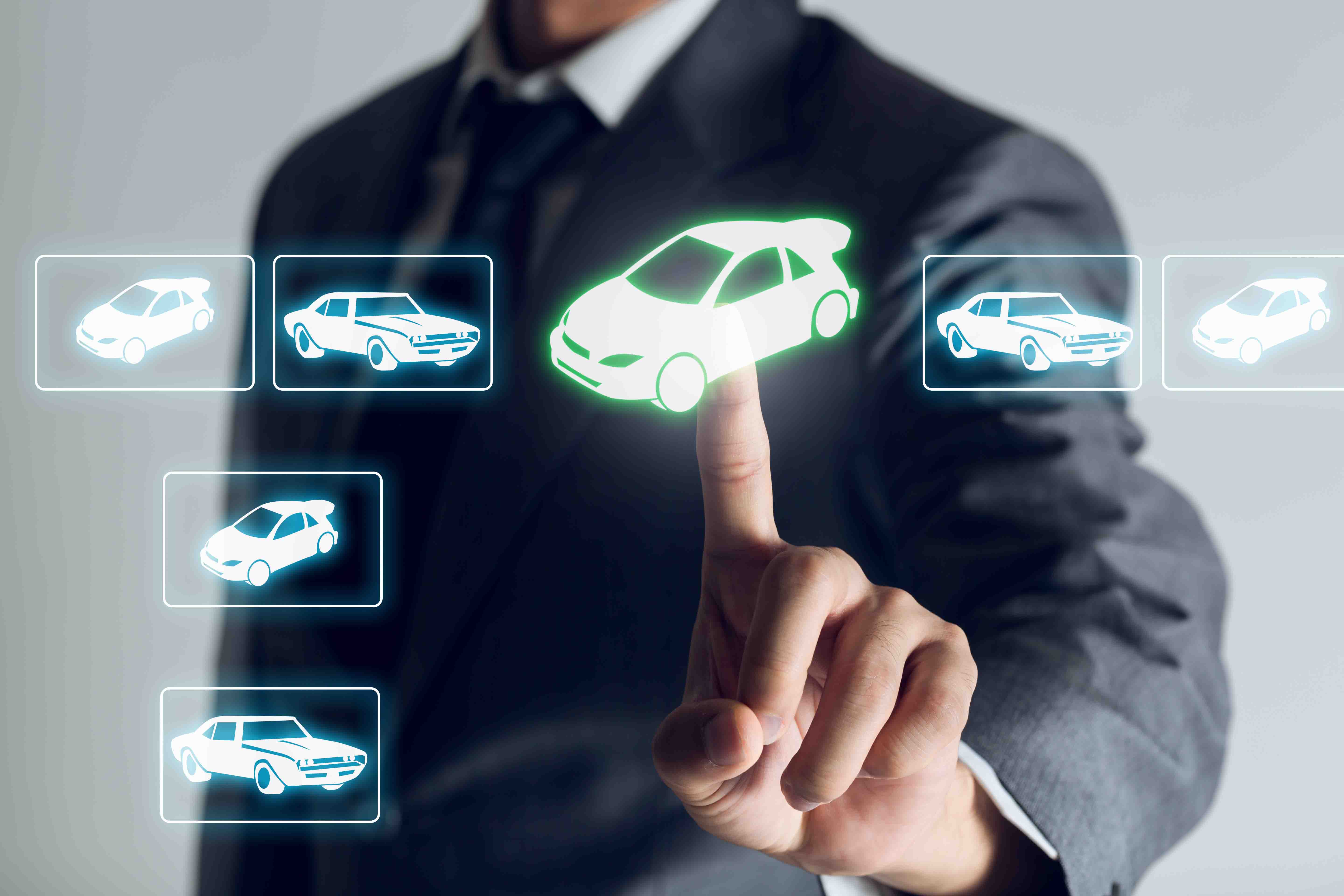Ditch Your Car, Save a Fortune
I've saved about $3,000 a year by going carless. Here's how you can do it, too.

Profit and prosper with the best of Kiplinger's advice on investing, taxes, retirement, personal finance and much more. Delivered daily. Enter your email in the box and click Sign Me Up.
You are now subscribed
Your newsletter sign-up was successful
Want to add more newsletters?

Delivered daily
Kiplinger Today
Profit and prosper with the best of Kiplinger's advice on investing, taxes, retirement, personal finance and much more delivered daily. Smart money moves start here.

Sent five days a week
Kiplinger A Step Ahead
Get practical help to make better financial decisions in your everyday life, from spending to savings on top deals.

Delivered daily
Kiplinger Closing Bell
Get today's biggest financial and investing headlines delivered to your inbox every day the U.S. stock market is open.

Sent twice a week
Kiplinger Adviser Intel
Financial pros across the country share best practices and fresh tactics to preserve and grow your wealth.

Delivered weekly
Kiplinger Tax Tips
Trim your federal and state tax bills with practical tax-planning and tax-cutting strategies.

Sent twice a week
Kiplinger Retirement Tips
Your twice-a-week guide to planning and enjoying a financially secure and richly rewarding retirement

Sent bimonthly.
Kiplinger Adviser Angle
Insights for advisers, wealth managers and other financial professionals.

Sent twice a week
Kiplinger Investing Weekly
Your twice-a-week roundup of promising stocks, funds, companies and industries you should consider, ones you should avoid, and why.

Sent weekly for six weeks
Kiplinger Invest for Retirement
Your step-by-step six-part series on how to invest for retirement, from devising a successful strategy to exactly which investments to choose.
In 2011, I parted ways with my car, a 2003 Kia Spectra that my grandparents had given me as a college graduation gift. After eight years of hassle- and payment-free driving, the car wouldn't start one morning before work. The mechanic's diagnosis: A small hole in the transmission had been causing fluid to slowly leak. The financial damage: It would have cost between $4,000 and $5,000 to repair. Cha-ching!
Use Our Tool: How Much Can I Save Biking to Work?
I was shocked when I heard that dollar amount. I immediately questioned whether sinking that much money into an eight-year-old car was worth it. There was no guarantee it wouldn't require another just-as-costly fix soon afterward. Also, I had been saving up to buy a home, so the repair would have taken money away from my stash for a down payment. That was a sacrifice I didn't want to make. When I considered how easy it would be to get around town with my own two feet and plenty of public transportation (I live in the Washington, D.C., metro area), I decided to go carless.
Carless Savings: About $5,000 a Year
The financial benefits of not owning a vehicle were immediate. Because I donated my car to the Purple Heart Foundation, I earned a tax deduction of about $200. The charitable organization even towed it away for me, free of charge.
From just $107.88 $24.99 for Kiplinger Personal Finance
Become a smarter, better informed investor. Subscribe from just $107.88 $24.99, plus get up to 4 Special Issues

Sign up for Kiplinger’s Free Newsletters
Profit and prosper with the best of expert advice on investing, taxes, retirement, personal finance and more - straight to your e-mail.
Profit and prosper with the best of expert advice - straight to your e-mail.
One of the biggest costs of owning a car—and perhaps the biggest hassle—was parking. The garages near my office charge $20 a day, on average. I typically drove to the office two or three days each week. I'm guessing I spent nearly $2,000 a year to park at work.
If I opted to take public transportation to work, I still had to figure out where to leave the car during work hours, which had gotten extremely frustrating. I didn't get to my neighborhood metro station early enough—which apparently meant before dawn—to use the public parking lot before it filled up. But if I left my car at my apartment building, where I didn't have designated parking, or on the street in my boyfriend's Northwest D.C. neighborhood, where I didn't have a parking permit, I often came home to a $25 parking ticket (and a headache). If I got a ticket just once a month, that would add up to $300 a year.
Cutting out the cost of gas was also huge. I used to shell out $45 every week to fill up my car, which added up to $2,160 a year. (Besides ditching your car, here are five ways to save gas money.)
Another big saving: I no longer had to pay for car insurance, which cost me about $900 a year. (See 5 Smart Money Moves for Young Adults, including how to save on auto insurance.)
All told, that's more than $5,000 I'm no longer spending on a car each year. But I've added some costs to my budget to compensate for my lack of wheels.
Carless Costs: About $2,000 a Year
Fortunately, Kiplinger provides a $50 monthly transit subsidy to help cover my cost of commuting to and from work via the subway or bus. But with my round-trip Metro ride costing $6.70 every day, it's not long before I'm paying out of pocket each month—a total of about $125 a month or $1,500 per year. (A perk to my carless commute is all the exercise I get by walking to and from the Metro.)
When I need a car on short notice or to make quick trips to places such as the grocery store or a doctor's office, ZipCar is great. For membership and damage fee coverage, I pay $135 annually. (Other plans in D.C. are available starting at $6 a month.) The rate to use a car varies based on vehicle type and location, starting at $6.59 an hour. I generally only use ZipCar once a month, at a cost of about $30 per trip. And if I need to fill up with gas while I'm out, ZipCar covers it. (See Smart Spending Tips for Young Adults, including using car-sharing services.)
For lengthy day trips—such as visits to my grandparents' house two hours away for family events—ZipCar isn't the most cost-effective choice. If I were to reserve a ZipCar from noon to 6 p.m. on a Saturday in mid May, for example, it would cost $65.23, including taxes. I can rent a car from Enterprise or Avis for an entire weekend for nearly that amount, if I plan in advance. But then I have to pay for gas and parking for that whole time, too.
A less-tangible cost of not owning a car: the extra time I have to allot to get to and wait for public transportation. On weekends in D.C., I sometimes wait 20 to 30 minutes at the Metro station for the next train.
Carless Conclusions
Not having a car has helped me save a lot over the past few years and achieve major financial goals. Most of that money went toward buying a new house in April. Now the money goes directly into my emergency savings fund.
Of course, going carless won't be the right decision for everyone. Be sure to give yourself a trial run before ditching your wheels. I tested out not having a car for about four months (while mine sat in my mother's garage) before finally donating my car in early 2012.
And while going carless has worked out well for me, I'll most likely buy a new car within the next year or two. I've already started saving for it. Having to travel on foot during inclement weather, plus unexpected subway delays during my morning and evening commutes and having to rely on others for a ride (and catering to their schedules) when public transportation isn't an option has slowly started to wear on me. When the time finally comes, I'll be sure to consult Kiplinger's annual Best Car Values guide, which ranks the year's top new-car models based on performance, safety and value. I want to make sure I'm getting the most bang for my buck because I plan to keep my next car for nearly a decade, too.
Profit and prosper with the best of Kiplinger's advice on investing, taxes, retirement, personal finance and much more. Delivered daily. Enter your email in the box and click Sign Me Up.

Browne Taylor joined Kiplinger in 2011 and was a channel editor for Kiplinger.com covering living and family finance topics. She previously worked at the Washington Post as a Web producer in the Style section and prior to that covered the Jobs, Cars and Real Estate sections. She earned a BA in journalism from Howard University in Washington, D.C. She is Director of Member Services, at the National Association of Home Builders.
-
 Nasdaq Leads a Rocky Risk-On Rally: Stock Market Today
Nasdaq Leads a Rocky Risk-On Rally: Stock Market TodayAnother worrying bout of late-session weakness couldn't take down the main equity indexes on Wednesday.
-
 Quiz: Do You Know How to Avoid the "Medigap Trap?"
Quiz: Do You Know How to Avoid the "Medigap Trap?"Quiz Test your basic knowledge of the "Medigap Trap" in our quick quiz.
-
 5 Top Tax-Efficient Mutual Funds for Smarter Investing
5 Top Tax-Efficient Mutual Funds for Smarter InvestingMutual funds are many things, but "tax-friendly" usually isn't one of them. These are the exceptions.
-
 10 Things You Should Know About Buying a Car Today, Even if You've Bought Before
10 Things You Should Know About Buying a Car Today, Even if You've Bought BeforeIf buying a car is on your to-do list, and it's been a while since you went shopping for a new one, this guide will help avoid any nasty shocks in the showroom.
-
 Get the Best Car Deal in Retirement: Here's the Trick
Get the Best Car Deal in Retirement: Here's the TrickPlanning on shopping for a new car this Labor Day weekend? Here’s how to haggle for a better price, even though you're retired.
-
 7 Gas-Saving Tips That Actually Work
7 Gas-Saving Tips That Actually WorkThese are gas-saving tips that will actually work for you and your car this year.
-
 Debit Cards vs Charge Cards
Debit Cards vs Charge Cardscredit & debt Whether sticking to a budget or reaping big rewards, understand whether debit cards vs charge cards are right for you.
-
 Four Smart Steps To Take Before Buying Your First Home
Four Smart Steps To Take Before Buying Your First Homehome Buying your first home can be daunting. Here are four things you need to do years before you start house-hunting to prepare financially for the biggest purchase of your life.
-
 Want to Lease an EV? The Tax Credit 'Loophole' for That Is Going Away Soon
Want to Lease an EV? The Tax Credit 'Loophole' for That Is Going Away SoonTax Credits If you are deciding whether to lease or buy an electric vehicle, here is what you need to know about how the EV lease tax credit works now that it will be eliminated under Trump's new tax law.
-
 The 15 Cheapest Places to Live: US Cities Edition
The 15 Cheapest Places to Live: US Cities Editionplaces to live Have a look at the cheapest places to live in America for city dwellers. Is one of the cheapest places to live in the U.S. right for you?
-
 Car Buying in a Topsy-Turvy Market
Car Buying in a Topsy-Turvy MarketYou need a new car? Good luck with that! What should you do? We've got some answers.